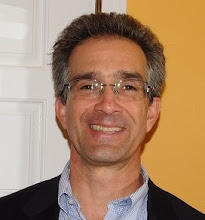Way back (today it seems like way, WAY back) in high school one of my teachers had us read "On Death and Dying" by Elizabeth Kubler-Ross. The book was a summary of Dr. Kubler-Ross's interviews with terminally ill individuals. Dr. Kubler-Ross concluded that those facing impending death, when looking back over their lives, all analyzed their lives in the answers to three basic questions: "Did I give and receive love? Did I become all that I could be? Did I leave the world a little better?"
Those three questions have stuck with me ever since. I'm not facing impending death (at least, not to my knowledge!), yet one of MY underlying beliefs (see the BAR Formula™ discussion below) is that these 3 Life Questions really do matter. In fact, they matter so much that, for me, I try to be sure that I can answer these 3 questions in the affirmative, every day. I figure that if I can answer these three questions in the affirmative every day, I'll be able to answer them in the affirmative at the end of my life.
It also seems to me that relationships are the key to answering these 3 Life Questions affirmatively. It is in and through our relationships with others that we give and receive love (Life Question #1). By giving and receiving love, we become all that we can be. After all, being in a state of true, unselfish love is the highest state of being for we humans and is how we truly "become all that we can be" (Life Question #2). That state can take many forms and includes one's relationship with oneself, another person (spouse, significant other, children, friends, family members, etc.), and (for those who believe this) one's creator, higher power, or universal consciousness.
The fact that becoming all that one can be happens in and through our relationships with others also leads to the answer to Life Question #3: "Did I leave the world a little better?" This question asks not about what you "got" out of life, but what you contributed. Contribution, of course, takes many forms. But the most impactful forms of contribution are those that produce a benefit to others, not (exclusively) to yourself.
It is in the pursuit of being able to answer these 3 Life Questions on a daily basis that we also uncover the meaning of our lives which, as Dr. Viktor Frankl accurately said in his book, "Man's Search for Meaning", is the ulitmate purpose of man's existence. Moreover, as Frankl said, each of us, through our uniquely human capacity to choose our meaning and to identify the "seed of meaning" in every moment of our lives (in both good and bad experiences), can define for ourselves the meaning that our lives have.
As Dr. Alex Pattakos pointed out in "Prisoners of Our Thoughts: Viktor Frankl's Principles at Work" (
www.prisonersofourthoughts.com), this uniquely human capacity to define the meaning of our lives is particularly important to apply in our work. (Additional thoughts on this topic may be found at Dr. Pattakos's blog at the Global Dialogue Center
http://www.globaldialoguecenter.blogs.com/meaning).
I believe the 3 Life Questions and the principles described by Frankl and Pattakos are directly linked and should be applied in the world of work. So much of our lives are bound up in what we do for a living that it would be silly to leave the pursuit of meaning and the desire to answer the 3 Life Questions affirmatively to our "non-work" experiences. Rather, I challenge business owners, managers, and "rank-and-file" staff members to consider the 3 Life Questions and Frankl's principles in the context of the business enterprise. To what degree is the organization and its internal workings enabling all of its stakeholders (investors, employees, suppliers, customers) to give and receive love? To become all that each can be? To leave the world a little better?
Many will scoff at this notion. Yet I argue that the 3 Life Questions, coupled with Frankl's correct assertion that "meaning" is man's highest purpose, are directly related and must be included in the world of work if organizations wish to attract the best people and become sustainable. Relationships matter. They are where meaning is discovered. This is as true among the various stakeholders in the workplace as it is in the more intimate relationships that exist between individuals outside of work.
It's worth considering....

